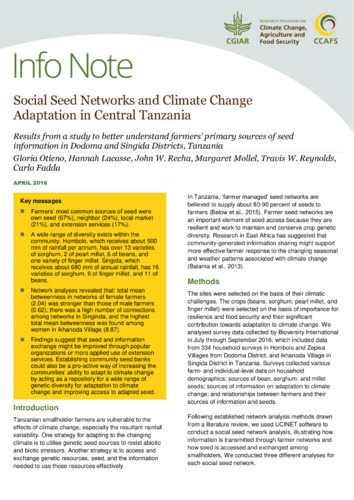Social Seed Networks and Climate Change Adaptation in Central Tanzania: Results from a study to better understand farmers’ primary sources of seed information in Dodoma and Singida Districts, Tanzania
Tanzanian smallholder farmers are vulnerable to the effects of climate change, especially the resultant rainfall variability. One strategy for adapting to the changing climate is to utilise genetic seed sources to resist abiotic and biotic stressors. Another strategy is to access and exchange genetic resources, seed, and the information needed to use those resources effectively.
In Tanzania, ‘farmer managed’ seed networks are believed to supply about 80-90 percent of seeds to farmers (Below et al., 2015). Farmer seed networks are an important element of seed access because they are resilient and work to maintain and conserve crop genetic diversity. Research in East Africa has suggested that community-generated information sharing might support more effective farmer response to the changing seasonal and weather patterns associated with climate change (Balama et al., 2013).

